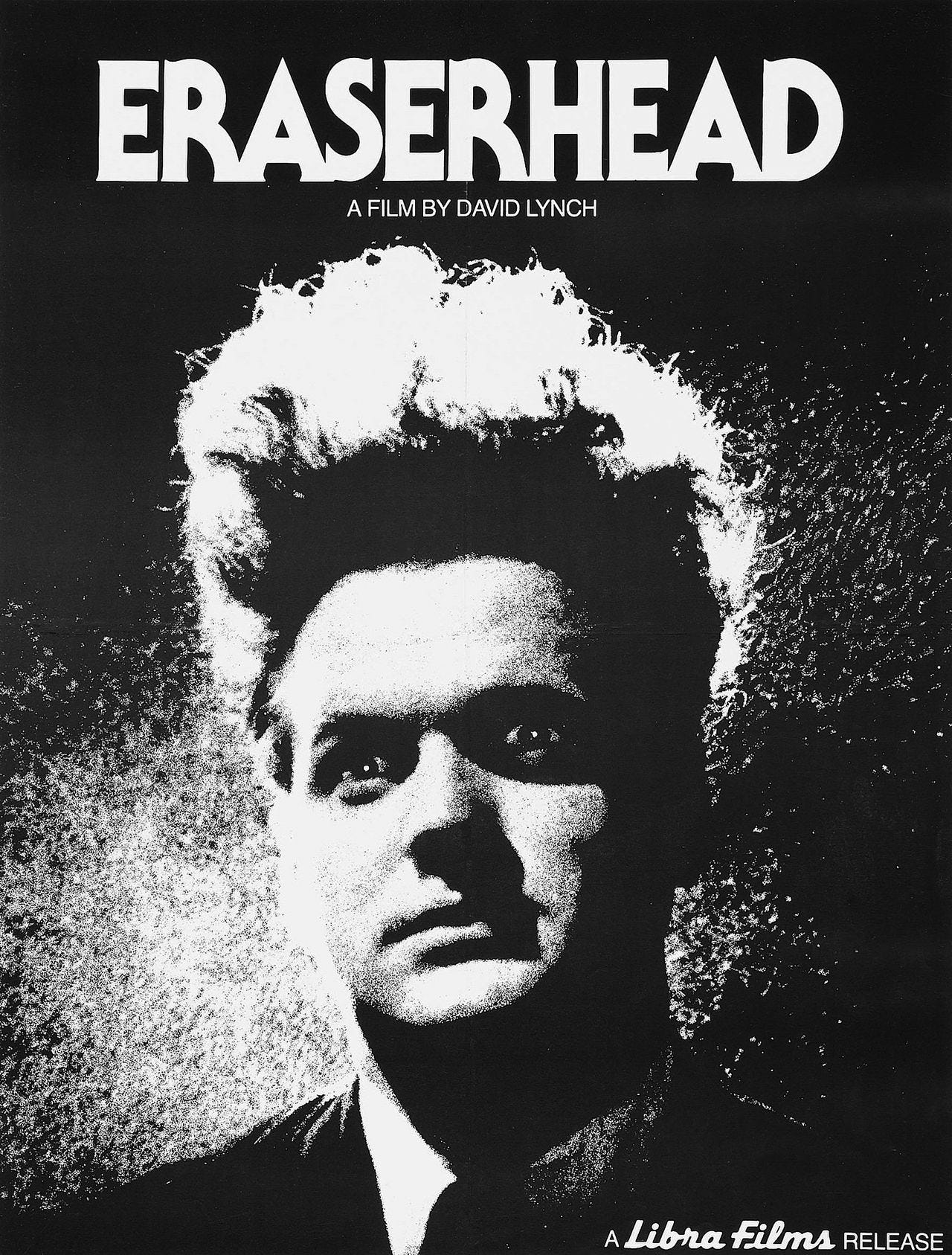DAVID LYNCH: THE UTTER IMPOSSIBILITY
of fitting all my thoughts into one post, let alone a headline, even after a week or so has passed
Somewhere in my correspondence, circa 1977, I have a letter from esteemed horror writer T.E.D. Klein telling me about a movie called Eraserhead, which has been playing in New York City. He expresses the wish that the director might adapt something by Ramsey Campbell, and hopes that I can see the movie before the “heads” (his phrase, I believe) completely co-opt this young director for their midnight movie cult. Ted’s letter put me on the trail of David Lynch, but even though I was within driving distance of Los Angeles, and the nearby Balboa Theater played all kinds of weird stuff (its constantly shifting program (which paired films like Sorcerer alongside Wages of Fear, just so you would get the point) constituting my first eclectic education in film), including midnight showings of Rocky Horror Picture Show, I didn’t manage to see Eraserhead until I was in college.
There was a little theater in a shopping village in downtown Eugene, Oregon. I know I saw Seven Samurai there for the first time, as well as Children of Paradise, but what I primarily remember is my first viewing of Eraserhead. The movie skewered me to my seat. I felt that Lynch had somehow extracted the quality of dreams—not necessarily my dreams, but still recognizable in such as way that I felt possessive of them—and put them on the screen. I was like a single goosebump from start to finish. Henry’s nightmare set on the tiny stage, the one that gave rise to the actual eraserhead sequence, was probably the peak of my frisson. But the Lady in the Radiator too… How did he know? How did Lynch know that as a child I would gaze into common objects and they would transform into strange spaces? Was this weird way of looking something that other people shared? I felt such a weird kinship with the way he presented perception. And although his vision was utterly unique, it felt like something universal.
Of course, I was obsessed. I wrote to Libra Films and asked if they could give me any information about the movie, about the director, and if they would please tell him how much it meant to me. In return, they sent me a press kit, including an Eraserhead poster and some promotional material. That poster, folded and refolded many times, went on the walls of every room I ever called my own for years after that, till it was a wrinkled mess with tack and tape marks on the corners. A few years back, when I packed up most of my papers and donated them to the University of Riverside’s Eaton Collection, I made sure to include it for safe keeping. A precious paper indeed, to me. Perhaps this post will help provide context if anyone ever comes across it and wonders what it meant to me.
It meant everything.
Maybe someday I’ll be able to hear this song without crying, but that day seems far off.


